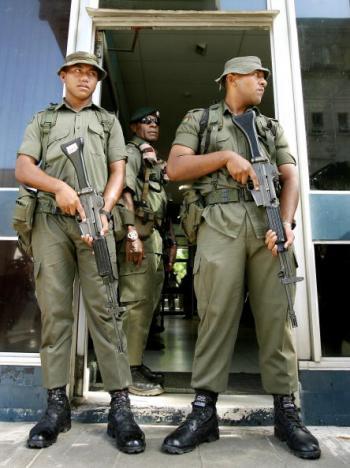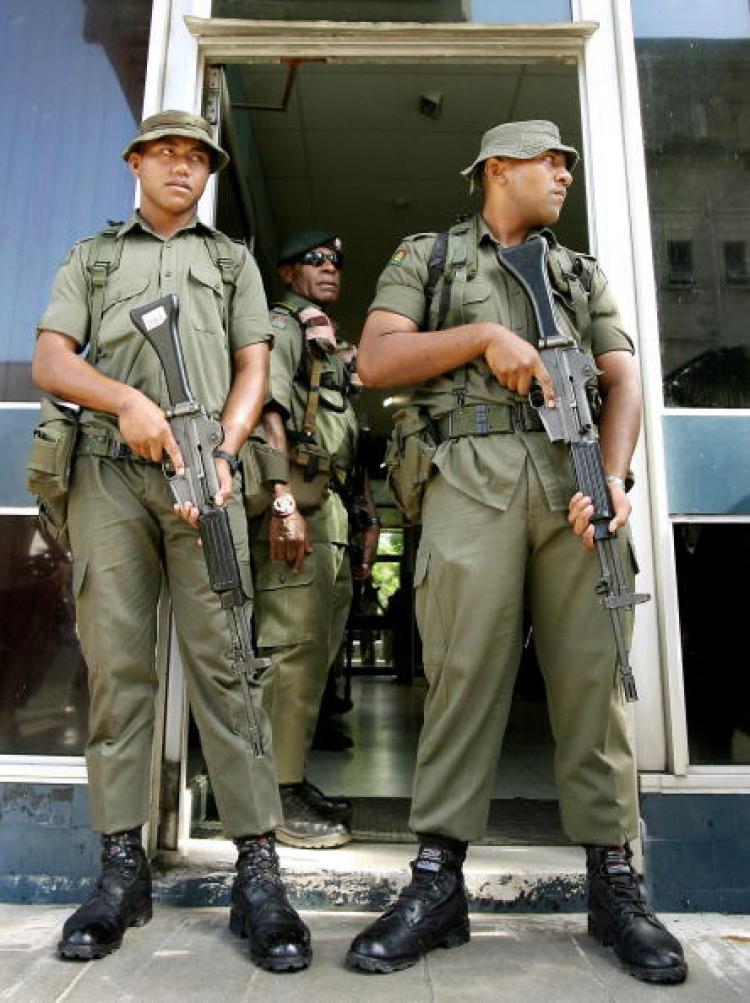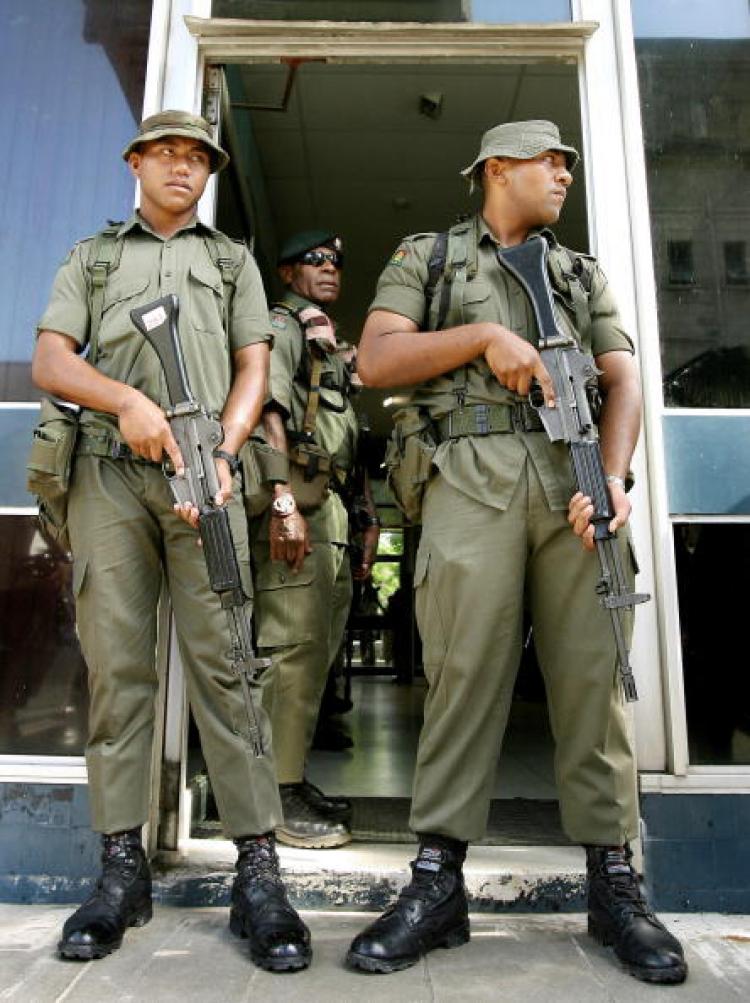Fiji Heading Towards Increasing Instability
Fiji’s military regime, headed by Commodore Frank Bainimarama, shows few signs of offering political stability.

While Commodore Bainimarama maintains control of the judiciary and the media, there are already signs of internal struggle as members of the military compete for positions of power. William West/AFP/Getty Images
|Updated:

